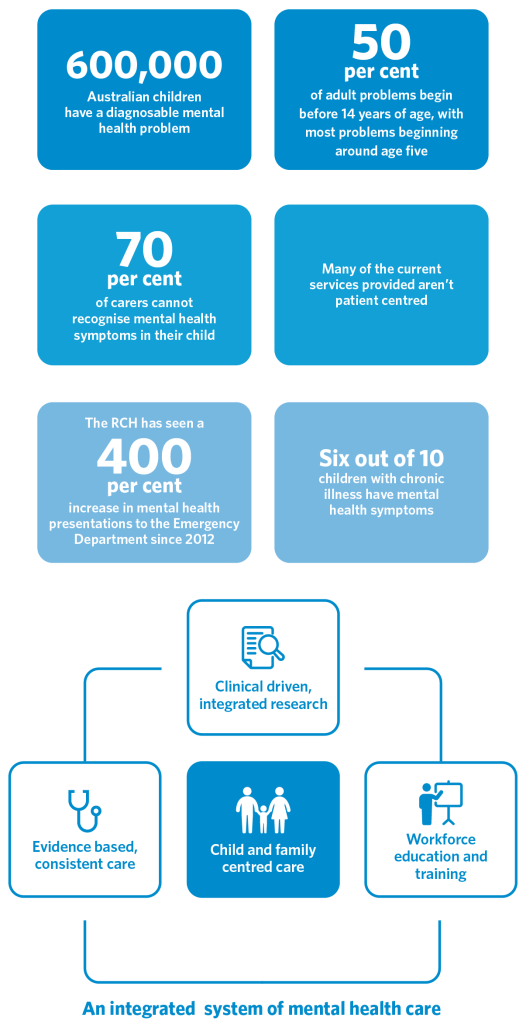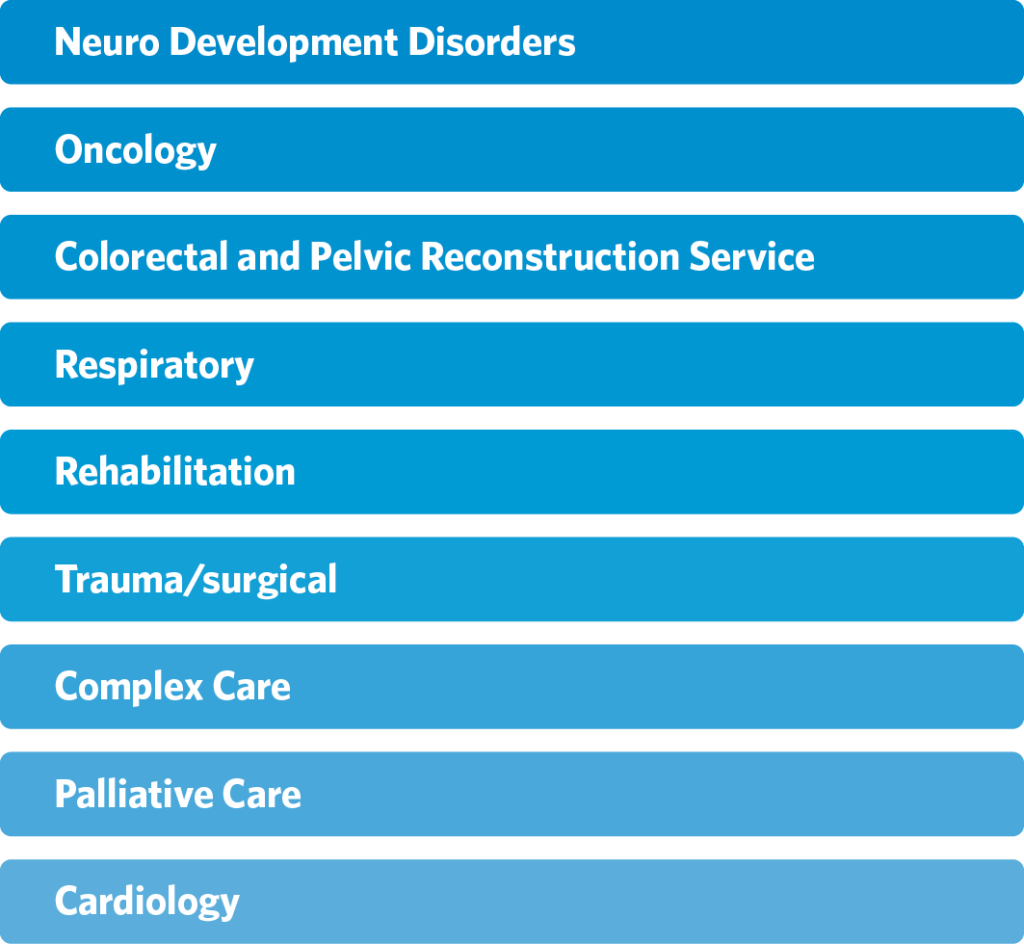Thanks to the support of the Good Friday Appeal and the RCH1000, the RCH is undertaking an innovative suite of research projects into one of the biggest health problems facing children and young people today: mental health.
The Melbourne Children’s Campus Mental Health Strategy is an ambitious multi-year project that aims to provide a uniform and evidence based approach to mental health prevention, care and advocacy for all patients and their families across the Melbourne Children’s Campus, which includes the RCH, the Murdoch Children’s Research Institute (MCRI) and the University of Melbourne Department of Paediatrics.
“Each year, thousands of children come to the RCH with physical health problems, but many of them also have mental health problems too. Our strategy will provide us the opportunity to work together collaboratively on the Melbourne Children’s Campus to better support parents and families in identifying mental health concerns while also developing new guidelines and models of care that we can share with the Victorian community,” said Professor Harriet Hiscock, who is leading the project.
The suite of projects will also generate quality evidence that can then be translated into workforce training and education for staff, both at the hospital and more broadly across Victoria and Australia. This, in turn, will inform great quality care and prevention.
In the first two years of the project, Harriet and her team have engaged many campus stakeholders, including a steering committee, and advisory, working and focus groups. They have also implemented a Lived Experience Strategy, research projects, multiple publications, an E-newsletter and podcasts.

CURRENT RESEARCH PROJECTS
Research projects supporting the implementation of the Melbourne Children’s Campus Mental Health Strategy are currently focusing on the following three areas:
The link between chronic illnesses and mental health:
One area of research is the link between mental health and chronic illnesses such as diabetes, epilepsy, inflammatory bowel disease, severe asthma and arthritis. This program focuses on three areas: COVID-19 resilience in chronic illness; mental health screening in children and young people that present at the RCH; and evaluating an intervention for psychological distress for children and young people.
Improving mental health among transgender, gender diverse, and non-binary adolescents:
Transgender, gender diverse and non-binary (TGDNB) people often can have poor mental health outcomes, with 48 per cent of Australian TGDNB youth reporting having attempted suicide. Currently the RCH is trialling a cognitive-behavioural therapy program for TGDNB adolescents attending the RCH Gender Service. This trial aims to improve the mental health of these vulnerable young people.
As part of this research project, clinicians across the Melbourne Children’s Campus will partner with Transcend Australia, a national organisation that provides peer support to parents of transgender young people. Transcend will help support the rollout of the intervention if proven effective. Following the findings of the trial, Transcend and the RCH will work together to implement the rollout of the new group therapy program for transgender teens into clinical practice in Victoria and beyond.
‘Take a Breath’ program – evaluating an intervention:
This project will see the trial of video conference-based acceptance and commitment therapy, removing wait times for parents to receive the support they need. This service is effective in reducing post-traumatic stress symptoms in parents with children that have chronic medical conditions. The support is currently available for participating departments at the RCH:

NEXT STEPS
Over the next three years, the RCH aims to fund two more projects in priority populations, and develop a core set of outcome measures for mental health research, which will allow the project team to compare results across interventions and see what works and what doesn’t. The hospital will develop and educate young researchers to become world leaders in mental health research, and aim to attract new mid-career mental health researchers to grow the specialised workforce.
“Thanks to the Good Friday Appeal and the RCH1000 for your ongoing support with this innovate project, I look forward to updating you all on project milestones in the coming year,” said Harriet.